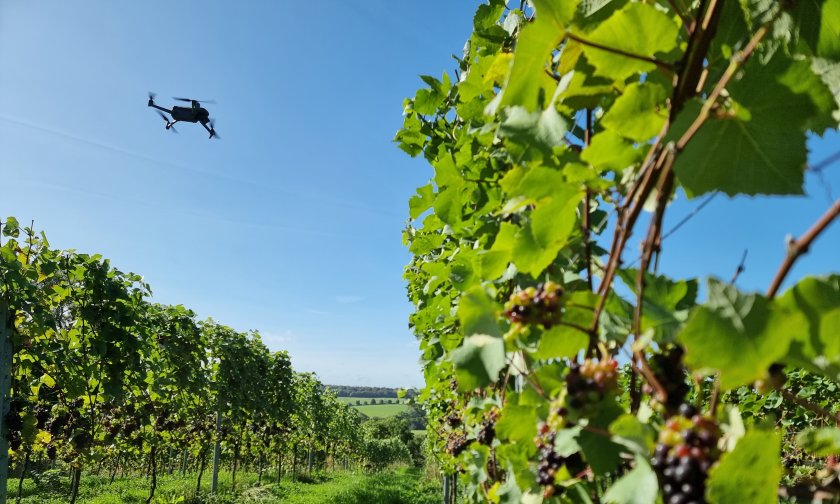
A new project creating an open-source initiative for data integration could pave the way for a 'new chapter' in British wine production.
The project's researchers explain that creating a standard for digital mapping is 'fundamental' for deploying tech onto UK vineyards.
Digital maps could enable valuable decision-making support to structured farming environments.
Defra’s Farming Innovation Programme is funding the project, called 'Vineyard Information System for Technology and Automation', or ‘VISTA’.
It aims to create an open standard for digital maps of commercial vineyards in the UK, supporting the drive to deploy more automation and precision systems onto farms.
The project will start by digitally mapping vineyards at the row and individual vine level, using JoJo’s Vineyard in Oxfordshire as a first test site.
Eliot Dixon, head of engineering at Agri-EPI Centre, said: "The agricultural industry has a strong need for increased data integration to unlock the true potential of precision agriculture across all sectors.
"As an industry which is inherently focussed on infrastructure, the key to getting this integration right is being able to communicate in a language-focussed infrastructure.
"This is what VISTA is all about as a project, creating a mapping standard for agriculture that allows robotics, drones, sensors and decision support tools to communicate, integrate their data and provide maximum benefit for farmers.
"Viticulture is just the start; we hope to see this basic principle being used in other sectors."
Drone, robot and in-field sensors will be used to monitor climate and weather, crop health, soil moisture, fruit counts, and fruit quality, with the VISTA map providing the digital backbone to process this data.
In the second year of the project, the high-resolution VISTA map will then be used to drive precision spraying systems on the farm and to produce accurate pre-harvest yield maps for growers.
Ian Beecher-Jones, co-owner of JoJo’s Vineyard, said "We have been developing precision viticultural technologies for the last couple of years.
"We have a strong belief the project will continue the work we have achieved in the Innovate UK Viticulture 4.0 project, which highlighted the importance of establishing a robust digital infrastructure on which all other technologies can work efficiently and effectively.”
